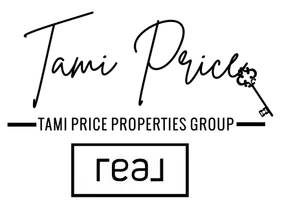Do You Still Need an Inspection on a New Build?

One of the biggest misconceptions among San Antonio homebuyers is that new construction homes don’t need inspections. After all, the home is brand new, the builder has followed current codes, and municipal inspectors have signed off — so why spend extra money on another inspection?
The truth is, even brand-new homes can have problems. From plumbing leaks to electrical mistakes, small oversights during construction can lead to major headaches later. Builders in San Antonio and surrounding markets like Boerne, Cibolo, Schertz, New Braunfels, and Helotes are building at record pace to meet buyer demand. With tight deadlines and multiple subcontractors working on each house, mistakes happen. An independent inspection is one of the smartest investments a buyer can make to protect their new home purchase.

Why Inspections Matter on New Construction
Even though new homes are built to modern standards, construction is a complex process involving many trades. Each stage introduces potential for human error, and municipal inspections often focus only on minimum code compliance rather than workmanship quality.
1. Construction Crews Work on Tight Timelines
San Antonio’s rapid growth means builders often juggle dozens of homes at once. Crews move quickly to keep up, and rushing increases the risk of oversights.
2. Oversights Happen More Often Than Buyers Realize
Common issues include:
- Misaligned framing or uneven foundation pours.
- Plumbing leaks from improperly sealed joints.
- Electrical outlets wired incorrectly or circuits overloaded.
- HVAC systems installed without proper airflow balancing.
3. City Inspections Have Limitations
Municipal inspectors check for code compliance but don’t evaluate craftsmanship. If something meets minimum safety standards but isn’t done neatly or correctly, it may pass city inspection but still create problems later.
Types of Inspections

1. Buyer’s Inspection
A buyer’s inspection, also known as a general home inspection, is performed after a home goes under contract. The goal is to identify any issues—structural, mechanical, or safety-related—before closing. Inspectors evaluate the roof, foundation, HVAC, plumbing, electrical systems, and more. The findings help buyers negotiate repairs or price adjustments before moving forward.
2. Builder Warranty Inspection
This inspection is done during the 11th month of a new home’s builder warranty period. Inspectors check for defects or unfinished work that should be corrected before the builder’s warranty expires. Common issues include settling cracks, plumbing leaks, or improperly installed systems. It protects homeowners from paying for repairs the builder should address.
3. Pre-Listing Inspection
A pre-listing inspection is performed before a home goes on the market. It allows sellers to identify and repair potential red flags that might delay or derail a sale. By addressing these issues upfront, sellers can improve buyer confidence and reduce the chance of renegotiations later in the process.
4. New Construction Inspection
A new construction inspection ensures that a recently built home meets quality and safety standards before move-in. It often includes a phased approach—foundation, framing (pre-drywall), and final inspection. Even new homes can have code violations or workmanship errors, making this a smart step before closing.
5. Pool/Spa Inspection
This inspection evaluates the pool or spa’s condition and safety. Inspectors check the structure, plumbing, electrical components, pumps, filters, heaters, and safety barriers (like fences and gates). The goal is to ensure proper function and compliance with local safety regulations.
6. Barn Inspection
A barn inspection assesses the structure’s integrity, electrical wiring, roof, stalls, and ventilation. It’s important for properties with agricultural or equestrian use, ensuring the building is safe for animals, storage, or other uses. Inspectors look for issues such as wood rot, electrical hazards, and drainage problems.
7. Termite / WDIR Inspection
Also called a Wood Destroying Insect Report (WDIR), this inspection identifies signs of termites, carpenter ants, or other pests that damage wood. Many lenders require this for home loans. Inspectors look for active infestations, damage, and conditions that could attract pests, such as moisture or wood-to-ground contact.
8. Sewer Scope Inspection
A sewer scope inspection uses a camera to examine the home’s main sewer line. It helps identify clogs, cracks, tree root intrusion, or pipe collapse. This is especially valuable for older homes or properties with large trees, as sewer repairs can be costly if undetected before purchase.
The Value of Phased Inspections
One of the best strategies for new construction buyers in Greater San Antonio is to schedule phased inspections. These inspections happen at key stages of the build to catch issues before they’re hidden behind drywall or difficult to repair.
Pre-Drywall Inspection
- Occurs after framing, electrical, plumbing, and HVAC rough-ins are completed but before walls are closed.
- Ensures structural framing is correct and systems are properly installed.
- Identifies problems while they’re still accessible and inexpensive to fix.
Pre-Closing Inspection
- Takes place once the home is complete but before final closing.
- Focuses on cosmetic issues (paint, flooring, trim) and functional systems (plumbing, appliances, outlets).
- Allows buyers to address a “punch list” of repairs before signing.
11-Month Warranty Inspection
- Conducted near the end of the builder’s one-year warranty period.
- Identifies issues that developed after move-in, such as foundation cracks, roof leaks, or settling problems.
- Gives buyers the opportunity to request repairs while warranty coverage is still active.
Local Examples of Why Inspections Are Critical
- Cibolo Buyer: A pre-drywall inspection revealed improperly installed roof trusses. Left unchecked, this would have caused structural problems down the road. The builder corrected it before closing.
- New Braunfels Build: An inspection uncovered a plumbing leak behind a wall. The issue would have gone unnoticed until water damage appeared months later.
- San Antonio Inventory Home: A pre-closing inspection revealed multiple cosmetic issues, including cracked tiles and uneven flooring. These were fixed before the buyer moved in, saving them thousands in post-closing repairs.
The Bottom Line
Even brand-new homes can hide construction flaws that aren’t visible to the untrained eye. Investing in professional inspections — especially phased inspections — gives San Antonio buyers the confidence that their new home is built right from the ground up. Whether it’s catching framing errors before drywall or addressing warranty issues before coverage expires, these inspections can prevent costly repairs and protect your long-term investment.
For buyers planning to build in areas like Cibolo, New Braunfels, Boerne, or Helotes, partnering with an experienced Realtor who understands new construction processes and inspection timelines ensures you’re covered every step of the way.
Thinking about buying, building, or selling in Greater San Antonio? Contact Tami Price, Realtor®.
Frequently Asked Questions
Q: Aren’t city inspections enough?
A: No. City inspectors ensure code compliance but don’t look for quality or workmanship. An independent inspector works only for you, not the builder.
Q: Who pays for inspections?
A: Buyers cover inspection costs. While this adds to upfront expenses, it’s minimal compared to long-term repair costs.
Q: How much do inspections cost in San Antonio?
A: Costs vary, but phased inspections typically range from $300 to $600 each, depending on the home’s size.
Q: Should I attend the inspection?
A: Yes. Walking the home with your inspector gives you valuable insight into your home’s systems and condition.
Q: Can I require repairs based on inspection findings?
A: Yes. Builders usually agree to fix legitimate issues identified during inspections, especially before closing.

 Want to learn more about how projects can affect your home’s value or buying decisions?
Want to learn more about how projects can affect your home’s value or buying decisions?
Text Tami at 210-620-6681 or follow @tamisellssanantonio for the latest real estate and community updates in Greater San Antonio.
Tami Price, Realtor® | Broker Associate | Real Broker, LLC
Categories
- All Blogs
- Alamo Heights
- Amenities in Helotes, Texas
- Best Neighborhoods to Live in Cibolo, TX
- Best Neighborhoods to Live in San Antonio
- Best Places to Live in Leon Valley: A Neighborhood Guide
- Best Places to Live in Northeast Inner Loop: A Neighborhood Guide
- Buyer
- Buying a Foreclosed Home in San Antonio
- Castroville, TX
- Cibolo TX
- Client Testimonial
- Clients review
- Commercial & Retail Development
- Cons of Living in Helotes, TX
- Converse TX
- Cost of Living in San Antonio TX
- Downtown Revitalization
- Events in San Antonio
- Fort Sam Houston
- Fort Sam Houston, TX
Recent Posts






